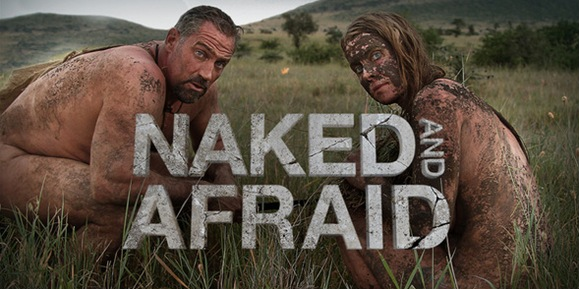
In the past two years, four reality TV shows that featured nudity premiered for the first time. Although all the actors’ genitalia are censored, this new fad has attracted much attention. One of the shows, Naked and Afraid, features two random people who must survive without clothes for 21 days in physically and mentally challenging locations, such as the Amazon rainforest and the Namibian savannah. Another show, Dating Naked, shows pairs of couples going on various dates in the nude.
Acceptance has varied: Naked and Afraid garnered 2.27 million views on its Sept. 23 season finale, but many critics and Aragon students have questioned the purpose of these naked shows.
Sophomore Justin Privitera believes these shows are more popular because society has grown desensitized to nudity over time. Privitera says, “They’re here, because in modern society, life is centered in a more sensual nature. People like seeing nude people, and it’s completely normal.”
Junior Jacob Gee believes the sudden increase in these types of shows occured because the shows offered something new to television. “[Adding nudity is] a different take on things basically. It would make people interested in [watching] to some point, because it’s like, when you watch something that’s abnormal, sometimes you can’t stop watching it.”
However, when junior Andrei Parala tried watching some of Naked and Afraid, he grew bored and changed the channel after ten minutes. To him, it didn’t add an extra danger to the contestants at all. “It was boring and it was pointless,” he says.
Privitera agrees, saying, “It enhances your survival experience? Oh, sure, if you’re ever dropped naked in the forest. I don’t think it makes any difference —it’s just there for the sex appeal, however slight it may be.”
Senior Angelika Prontzos also thinks that some of these shows have little purpose. She watched half of Dating Naked and turned it off. “I feel like whenever they’re talking, they’re like not even having a real conversation; they’re just looking at each other [inappropriately]. They’re all just super hippie, and they all just want to be one with their body, and they don’t want to wear clothes.”
However, producers of these shows think their shows have more substance than is apparent. In an interview with Salon.com, Naked and Afraid producer Denise Contis defended the show by saying it was not meant to draw attention for the nudity, but for the enhanced intensity of the survival experience. “We didn’t develop the show to be exploitative, ever.”
Discovery executive Craig Coffman stated on the Discovery website, “Survival shows are so common now that it’s gotten more and more difficult to convince the audience that what they’re watching is something extreme.”
For example, contestants have been swarmed with bug bites from exposure. Coffman says, “Having no clothes just takes it to the next level. It’s the ultimate test and makes survival exponentially more difficult.”
Prontzos says not all shows with nudity seem pointless. Some showcase important aspects, such as art. She thoroughly enjoys the new series Skin Wars, where contestants compete in a body-art contest. She says, “It’s different for art. A lot of the human body is like art anyways, so if you paint on it, I think it’s more acceptable. Like the reason is to make more art, instead of being like ‘Oh, I don’t need to wear clothes and I can go meeting people.’”
Privitera, however, remains unconvinced that these shows have any other purpose besides nudity. “Well, think about it, would anybody watch that show if they just made shirts with designs on it? Yeah, no. So, it’s about the body.”
Even though these shows are censored, some people may feel uncomfortable about how easily these shows can be accessed. Prontzos says, “They should make these shows TV-14.”
Parala disagrees, “It doesn’t matter—they’re censored, and they can’t see anything.”
Junior Teague Bredl agrees, “It’s up to the person watching the show to decide. It’s not like seeing naked people is traumatizing; it’s not like if you see a glimpse of it you’re like, ‘Oh my goodness—I’m scarred for life.’”
Regarding sensitive individuals, Bredl recommends, “If you don’t want to watch the show, don’t see it,” he says.”
Whether people decide tune in or not, the nudists and their shows are here to stay.
Ends Bredl, “They exist and shouldn’t be suppressed. I’m for the nudists— I think people should get naked if they want to.”




